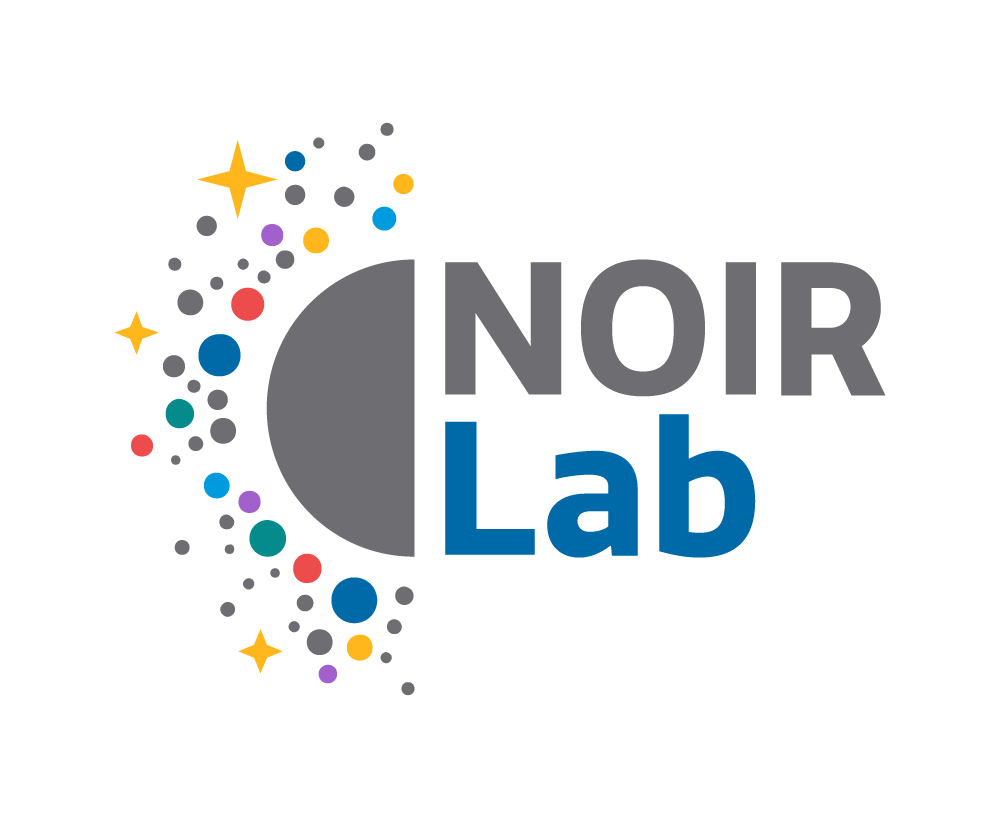Andacollo Stadium Debuts New Lighting to Protect NSF NOIRLab Observatories
Andacollo Stadium’s metal-halide lights were replaced with dark sky-friendly LEDs to protect astronomy and astrotourism
9 July 2025
For several years, nights in the Chilean city of Andacollo were unnaturally bright. This brightness did not come from the stars or the Moon, but from the powerful lights at the city's municipal stadium. Built in 2015, the stadium’s lighting system consisted of 1000-watt metal-halide lights that not only illuminated the playing field but also the surrounding residential areas and the night sky. Located just 27 kilometers (17 miles) from the U.S. National Science Foundation Cerro Tololo Inter-American Observatory (CTIO), a Program of NSF NOIRLab, the venue was one of the brightest light sources visible from the peaks of NOIRLab's observatories in Chile.
AURA and the scientific community have been informing the Andacollo authorities of this concern for years, but major progress didn’t happen until 2023, when the National Sports Institute (IND) approached the Office for the Protection of Sky Quality in Northern Chile (the OPCC, which is a part of AURA/NOIRLab in Chile) to seek its opinion on various projects, including the installation of dark-sky friendly lights at Andacollo Stadium.
Thus began a collaborative process between the OPCC and international public and private organizations to redesign the stadium lighting. The venue has complex geometry that makes it difficult to concentrate light exclusively on the playing surface. The objective: illuminate the game without obscuring the sky.
After more than two years of work — which included analyses, corrections, iterations, and millimeter-level adjustments — the team achieved their goal with a new lighting system that was completed in May of this year. The new system consists of state-of-the-art LED lights from Musco Lighting designed to exclusively illuminate the playing surface while minimizing light emission into the sky and reducing energy consumption by 30%.
The new lighting complies with current environmental regulations and significantly reduces blue light, which is harmful to astronomical observation, biodiversity, and human health, while providing an improved visual experience for athletes and spectators.
Tests conducted at CTIO confirmed the effectiveness of the change. The glare, once clearly visible from the observatories, almost completely disappeared — so much so that the lights went unnoticed by the naked eye during nighttime tests.
This change not only benefits astronomy but protects the growing astrotourism industry in the Coquimbo Region, which depends on the quality of the night sky. Andacollo Stadium is an example of designing public infrastructure without losing sight of what is essential: the natural and cultural heritage above our heads.
More information
NSF NOIRLab, the U.S. National Science Foundation center for ground-based optical-infrared astronomy, operates the International Gemini Observatory (a facility of NSF, NRC–Canada, ANID–Chile, MCTIC–Brazil, MINCyT–Argentina, and KASI–Republic of Korea), NSF Kitt Peak National Observatory (KPNO), NSF Cerro Tololo Inter-American Observatory (CTIO), the Community Science and Data Center (CSDC), and NSF–DOE Vera C. Rubin Observatory (in cooperation with DOE’s SLAC National Accelerator Laboratory). It is managed by the Association of Universities for Research in Astronomy (AURA) under a cooperative agreement with NSF and is headquartered in Tucson, Arizona.
The scientific community is honored to have the opportunity to conduct astronomical research on I’oligam Du’ag (Kitt Peak) in Arizona, on Maunakea in Hawai‘i, and on Cerro Tololo and Cerro Pachón in Chile. We recognize and acknowledge the very significant cultural role and reverence of I’oligam Du’ag to the Tohono O’odham Nation, and Maunakea to the Kanaka Maoli (Native Hawaiians) community.
Links
- Oficina de Protección de la Calidad del Cielo del Norte de Chile (OPCC)
- NSF Cerro Tololo Inter-American Observatory
- Read more about NOIRLab’s work to protect our astronomical sites
Contacts
Josie Fenske
Public Information Officer
NSF NOIRLab
Email: josie.fenske@noirlab.edu









